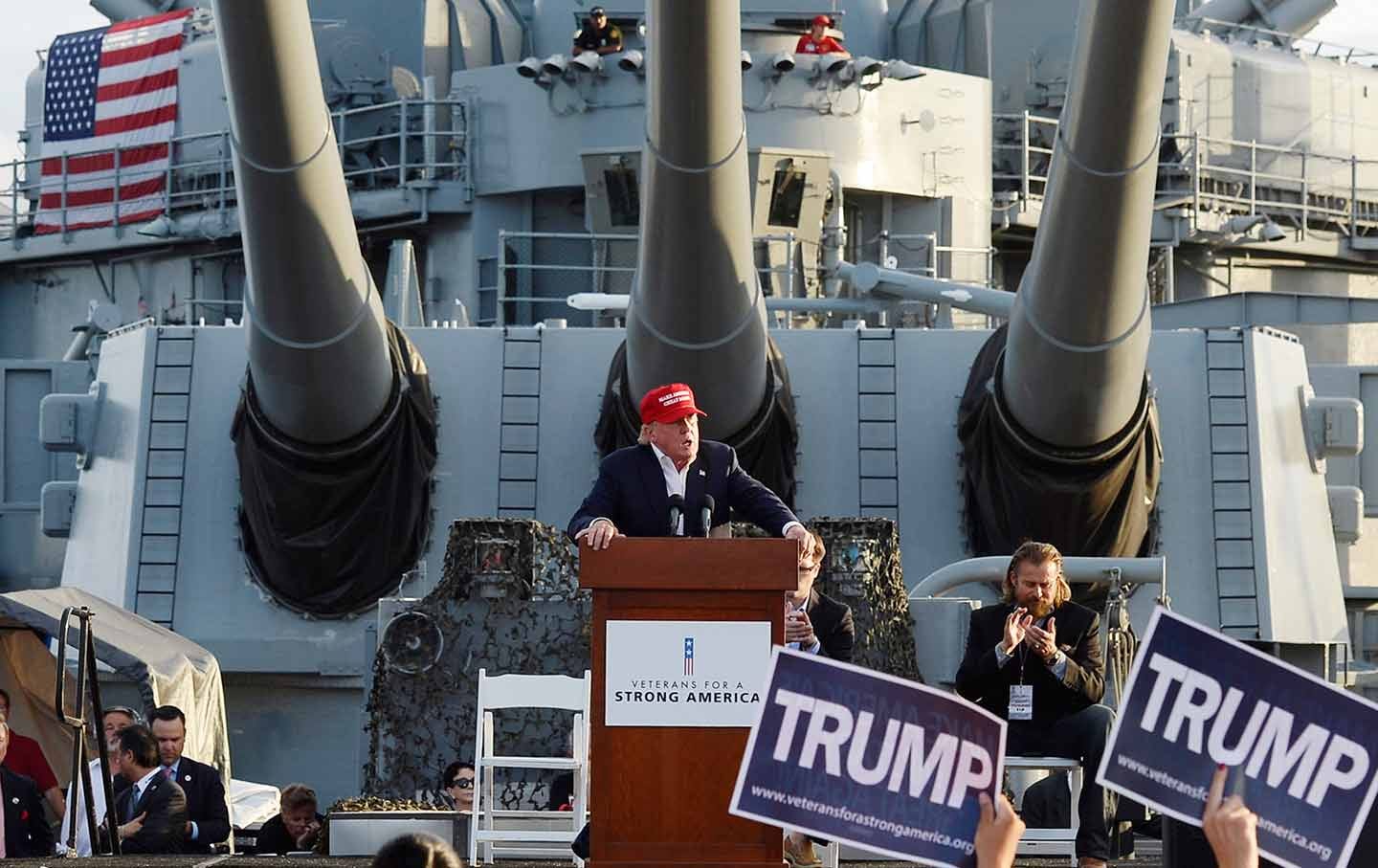Fortress America.
As the contours of Trumpian foreign policy take shape––reduced foreign aid, Greenland expansion, tariffs on our closest allies––the internationalist assumptions that have long served America are over.
In the early part of the last century, Woodrow Wilson wrote, “When properly directed, there is no people not fitted for self-government.” This belief animated U.S. foreign policy, with fits and starts, for over a hundred years. It is the basis of much of our foreign aid to other countries. It is, or has been, a quietly nurtured hope of most Americans. Until recently, we believed that nations, however primitive, could be taught to govern themselves in an ordered and free way.
That belief is now being tested in a world envisioned by Donald Trump. In Trump’s view, nations act in their self-interest. They are by nature hostile towards America, however beneficent we may be. They seek to take advantage of us while not aiding us in existential crises that threaten our existence, such as illegal immigration and fentanyl trafficking. Our only salvation in the Trump view is that we are bigger, stronger, and better equipped to fight off their purchase of our sovereignty and well-being. The litmus test for foreign aid is whether it advances our base economic interests.
While Wilson saw all nations progressing toward a democratic ideal, Trump views this well-meaning imperative as a fantasy or beside the point. In parts of Asia, namely Japan, the Philippines, Singapore, and South Korea, the Wilsonian principle of democratic government took hold. But in China and North Korea, and increasingly in Russia and its proxy states, it has backslid. For Trump, that is the way of the world. We deal with nations as they present themselves, not as we wish them to be.
Unclouded and unburdened by any liberal Judeo-Christian catechism about the inexorable direction of nations toward greater democracy, Trump does not seek to persuade countries to be other than they are. Gone is the bully pulpit for freedom. Gone is that shining city on a hall. The U.S.'s role is not to protect our allies, whatever the cost, but to treat all nations—Canada to Costa Rica, Bahrain to Brazil––as competitors. Some are friendlier than others, but they are, nevertheless, competitors. It’s a zero-sum game with clear winners and losers.
This translates in Trumpworld into no more free lunches, all alike paying their fair share and an end to fighting other nations’ wars. Only when America is secure, treated reasonably, and thoroughly prosperous can America even think of helping other countries. America, as the source of goodwill gestures that vaguely advance our soft power, is over. The idealism underpinning USAID is a case in point. From here on out, such assistance is tied to the Trumpian goal of America First and an abrupt and total end to DEI.
This world order will look very different to nations, organizations, and individuals invested in the previous one. Wilson believed in the unique spiritual calling of America, born as she was from the admixture of the diverse peoples of Europe. Americans, Wilson wrote, are “custodians of the spirit of righteousness, of the spirit of equal-handed justice, and of the spirit of hope which believes in the perfectibility of the law with the perfectability of human life itself.” America’s destiny was not merely to attain wealth and power but to be a model to the world of what democracy looks like. This view held—with a minor divergence from 2016-2020–-until two weeks ago. In the vernacular of the day, there is “a new sheriff in town.”
Trump believes the Wilsonian worldview has caused the U.S. to be abused in all manner of ways. In Trump’s view, the U.S. has behaved like a “chump,” except the blame does not go to other nations––they are merely acting in their self-interest. The blame falls on us. We have failed to demand to be treated with respect. On trade, where we have run up huge deficits with other nations. On the border, where nations do next to nothing to help stem the flow of illegal immigration. In foreign affairs, where the U.S. is the largest donor in alliances like NATO but the prime beneficiaries are across the Atlantic.
It might be said, for instance, that nations like Denmark can produce a vast safety net for their people because they are not paying their fair share for their defense. This has not gone unnoticed, as Denmark struggles to portray itself as the rightful protector of Greenland. Just over a week ago, Denmark announced $2 billion in increased aid to Greenland, including increased surveillance capabilities on the increasingly strategic island, three new naval vessels, two long-range surveillance drones, and enhanced satellite capacity. This happened because Trump dropped hints that the U.S. might want to purchase the island. Will it be enough?
The same is happening thousands of miles from Greenland. The Panama Canal was built at a significant loss of life––25,000 French and Jamaicans, about 6,000 Barbadians, and about 300 Americans––and at a tremendous cost (several hundred million dollars). While China does not run the canal, the canal authority is playing footsie with China over its grand infrastructure initiative called Belt and Road, which allows China access to vast infrastructure projects in the Canal region. This week, after intense pressure from Trump and Secretary of State Rubio, Panama ended its cooperation with China.
In Trump’s worldview, the world is like high-level New York real estate: no true friends exist, and everyone acts out of their interest. Alliances, the post-war bedrock of peace and prosperity, must be met with suspicion. Tariffs, even against our closest friends, are necessary to win compliance with our agenda. We seek less trade and less immigration until the terms of each are tilted in our favor. Welcome to Fortress America.




